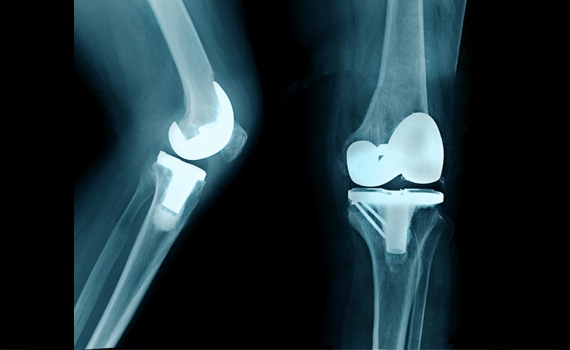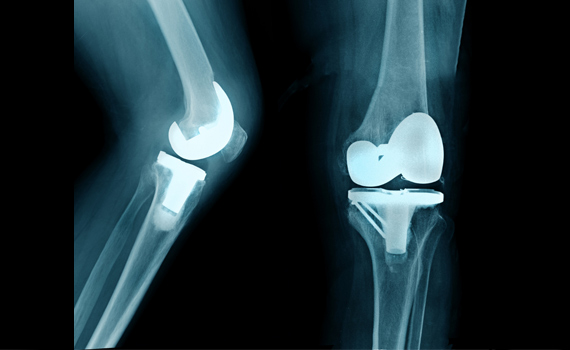

Knee replacement surgery can be performed on people of all ages but the best results have been shown in people over the age of 60; however. During the procedure the damaged, worn or diseased knee joint is removed and replaced with an artificial joint.
Knee replacement surgery is usually required when the knee joint is damaged in some way and therefore causing significant pain and mobility problems. Osteoarthritis is the most common reason for people to have a knee replacement. Other conditions include:
- Rheumatoid arthritis
- Post traumatic arthritis (after a knee injury)
- Haemophilia
Knee replacement surgery is a major surgery. This will only be offered to patients if they are unable to treat their symptoms with more conservative methods; this will most likely be physiotherapy or steroid injections.
If your knee problems are having a severe effect on your day to day life, then you may be offered knee replacement surgery.
There are primarily two main types of knee replacement:
- Total knee replacement – both sides of the knee joint are replaced
- Partial knee replacement – only one side of your knee joint is replaced (this surgery is smaller and takes less time to recover)
Before the surgery, your doctor will go over everything you need to know and answer any questions that you may have. Knee replacement surgery is very common and successful operation, but has about 18-20% chance of dissatisfaction. Your doctor may recommend that you try to build up muscle before the surgery, as this will help to aid a speedy recovery. This can be swimming or walking; if you need help you may be referred to see a physiotherapist.
After the knee replacement surgery patients will usually stay in hospital for 3-5 days, however this is different for everyone. When you return home, it is important that you follow the instructions that your doctor gave you, so that you can avoid any complications. The pain after the surgery usually starts to ease off within the first few weeks. At first you will need a walking frame or crutches to move around, however this should only last for around 6-8 weeks before you start to walk unaided.
Once the knee has recovered from the surgery you should notice a reduction in the symptoms that you were experiencing prior.
This article is intended to inform and give insight but not treat, diagnose or replace the advice of a doctor. Always seek medical advice with any questions regarding a medical condition.










